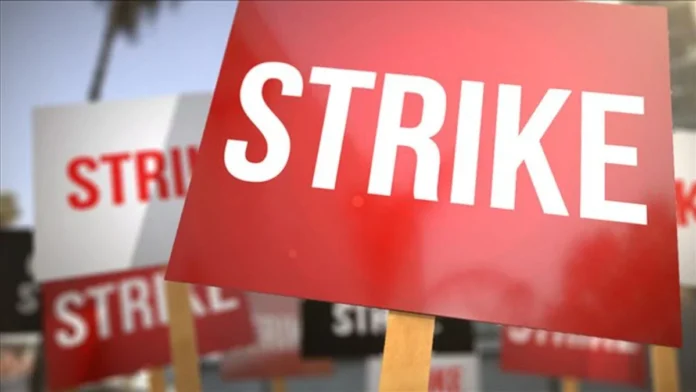Strikes are our most effective weapon to improve our wages and conditions. The point of strike action is to achieve victory, not just for talks with the bosses. We know that governments rarely implement their promises. So why are strikes so frequently suspended before our demands are met? We cannot buy food from the market with promises. Our demands must be implemented before we go back to work. We have to change our trade union strategies. We can no longer afford to snatch defeat from the jaws of victory.
Two recent disputes dramatically demonstrate the scale of the problem. Strikes that clearly deserved to win, have yet to result in a conclusive victory. Strikes were unfortunately suspended several times. Robust and resolute action, with expansion of the scope of the strikes as necessary, should have achieved important and decisive victories.
First the electricians’ dispute with the privatized electricity distribution company in Kaduna. The specific demands had been made by the union for over a year, but strike action is yet again being threatened from the 1st March after being suspended on 7th February.
Similarly in Abuja, the area council workers and primary teachers have again suspended their action which resolves around the minimum wage that became law last July. In each case the specific demands are common to many other groups of workers who could easily be called on to extend the strikes and so achieve a rapid and conclusive victory.
Members of the Nigerian Union of Electricity Employees (NUEE) in Kaduna embarked on indefinite strike action way back in March 2024. Non remittance of pension contributions for over 72 months and non-payment of death benefit were some of the complaints. These also included alleged plans to retrench 1,000 staff. The company had previously retrenched 30% of its staff in 2014 after privatisation. NUEE had previously called a strike in January 2024 over the failure of the company to implement its agreement with the union.
The last strike in February of this year, left residents of Kaduna, Sokoto, Zamfara, and Kebbi states in darkness. This showed the power of the workers, but the strike was suspended after only five days. The company “agreed to review its past actions”. In return the trade unions recognised “that the Management is operating under stringent conditions, given the prevailing economic situation in the country”, a huge concession. We do not know the true position of the company as it has not even filed financial statements for over three years.
The NUEE strike in Kaduna is also set to recommence on 1st March. This was after the company was given a week’s notice to “return to the negotiating table” on Sunday 23rd February. The company had again issued dismissal notices to its staff.
Rather than demoralizing the workers with continually suspending the strike, it should have been generalized to achieve and clear victory. Ibadan Electricity Distribution Company, for example, confirmed in early February the sacking of some of its workers. In response, workers in Ilorin said that they were embarking on an indefinite strike to protest poor welfare facilities for workers of the company.
So similar issues are suffered by workers in other electricity companies and could have been responded to with a common strike. In addition, workers in Kaduna State struck for two days in early December over the implementation of the minimum wage (that strike had also been supported by NUEE). This shows another way to generalise the electricians strike with a local general strike to achieve an early victory.
The area council workers’ and primary school teacher strike in FCT was suspended in October after 20 days, then again in December after 10 days and again on 21st February after yet more promises. Again this strike should have been generalised to achieve early victory. It could have included all teachers in the FCT (as it did initially), but also other states who have yet to adequately implement the national minimum wage.
There is no real reason why strikes need to be called to hold negotiations. The judiciary workers union, JUSUN, for example, has a tradition of continuing strikes until payment is received, even after agreements have been signed. Most recently, JUSUN workers in Abia State struck for judiciary independence. The strike began on 2nd of January, 2025 because of the State’s failure to implement the Memorandum of Understanding with JUSUN. Despite a formal signed agreement with the State Government, the union correctly waited to receive the promised funds in their bank account before suspending their strike.
The problem is political. The labour leaders have largely accepted the view that “Nigeria can work towards…” so all they claim is needed are negotiations for an amicable settlement. In contrast, the corrupt elite have looted the nation dry and continue to refuse to implement any agreements with the trade unions. We have to change this view – we have to recognise that there is a class war. If we do not fight then we will continue to lose this war!
Calling off strike action before agreements are even signed, or before clear implementation of such agreements, can be a sign of weakness. Negotiations have to be from our strongest possible position. The current practice of calling off strikes for negotiations or agreements that are not implemented has to change. We need a consistent argument that strikes win results. To achieve implementation of our demands we have to continue strike action until this is achieved. We need to organise in our different unions to ensure that this change of strategy is consistently adopted.






